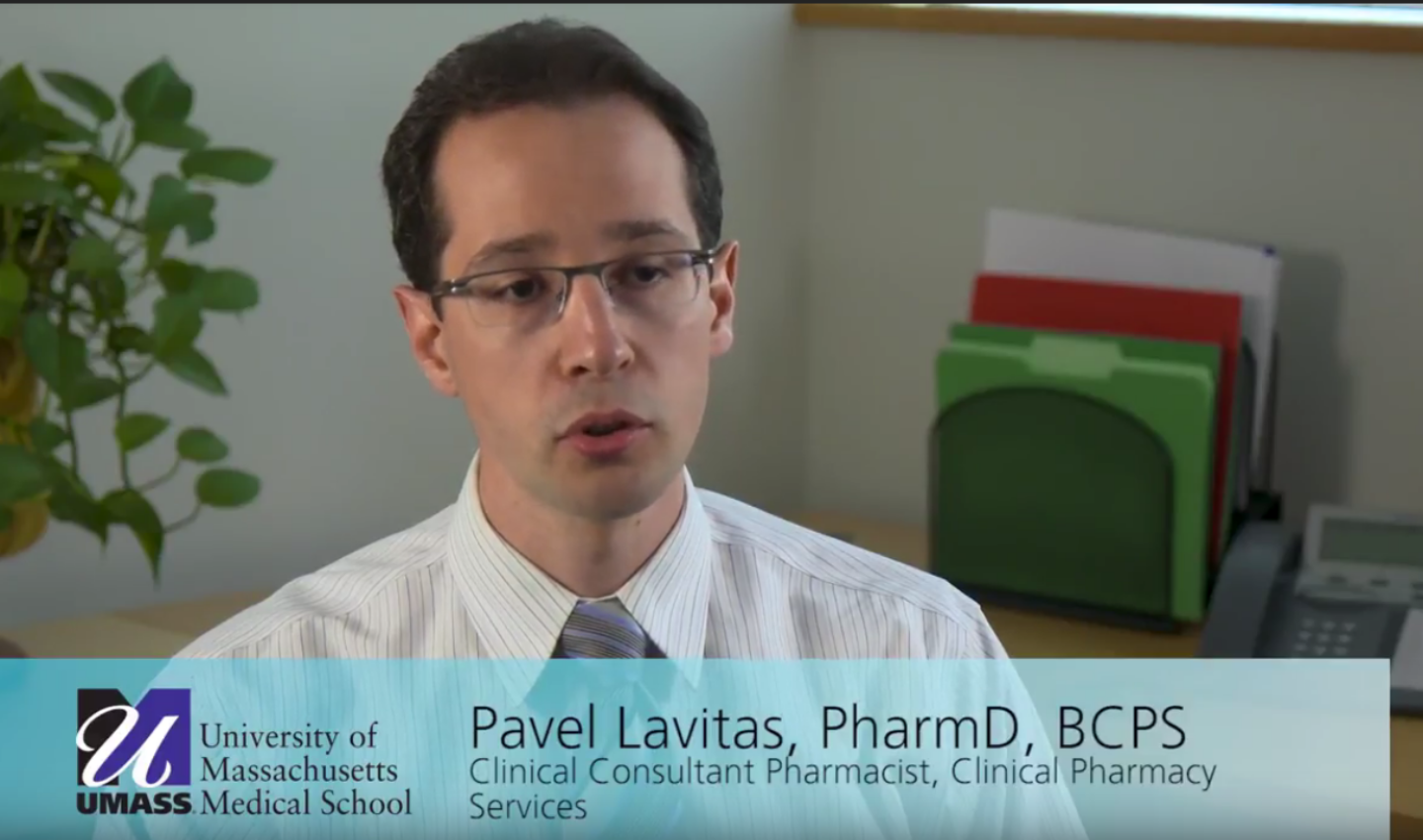A new crop of drugs has turned Hepatitis C into a curable condition, but getting patients to adhere to intensive drug regimens can sometimes be a challenge, notes Pavel Lavitas, PharmD, BCPS, of UMass Medical School.
Keeping a close eye on whether patients are getting refills – and intervening when there are signs of trouble – is a key part of the Hepatitis C medication management program developed by UMass Medical School, says Lavitas, a clinical consultant pharmacist in Clinical Pharmacy Services.
“The successful Hepatitis C medication management program should promote the cost effective use of limited health care resources while also optimizing member outcomes,” Lavitas notes.
Patients who drop their Hepatitis C drug regimen before it is complete can face serious health consequences while also generating higher medical costs for state Medicaid programs, with treatment running into the tens of thousands of dollar per patient with the latest drugs.
The medical school’s pharmacist technicians monitor prescription records and will call members to provide reminders when they are due or, in rare instances, overdue, Lavitas says. It is also used as a chance to provide patient education.
If it turns out a patient has stopped their Hepatitis C drug regimen or treatment has been postponed, “we will adjust the prior authorization accordingly to ensure the patient’s care has not been corrupted,” says Lavitas.
The pharmacy team will place patients with substance abuse issues or a history failing to stick with their medication in a case management program.
“This is to support the member’s efforts in staying adherent to treatment and also to provide them with patient education,” Lavitas says.


